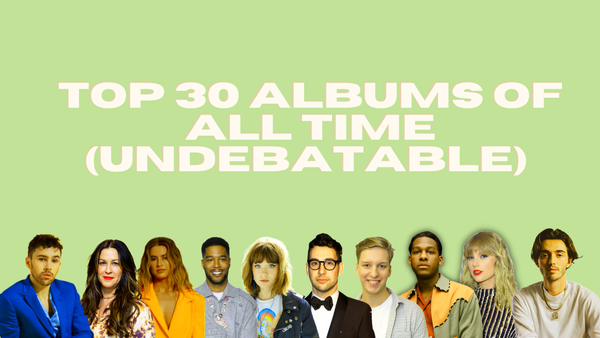If someone is ever raving about "What Do You Think About The Car?" to you, they will most likely keep reminding you that Declan McKenna is only eighteen, though whether they're saying that as a fun fact or as a justification for possible mediocrity is still up in the air. Nevertheless, it's worth noting the musical prowess of McKenna, not just in the maturity of sound but also in separating himself from upcoming millennial musicians who are swamped in nineteen-nineties pop-punk clichés. When asked about his influences in a Reddit AMA, McKenna emphatically responded "ABBBBBAAAAAAA," but his influences evidently seem to lie more toward the milieu of Pandora-friendly Indie pop outfits of the late aughts. Interestingly enough, the album was co-produced by Rostam Batmanglij, a former member of Vampire Weekend, the group that galvanized this milieu.
So, when approaching this album head-on, there isn't too much to love or too much to hate beforehand, even in the information age. The cover art leaves much to be desired. Although some people are preemptively decrying "American Dream" by LCD Soundsystem as the worst cover art of 2017, I'd have to differ here. All things considered, the music must stand for itself, which is both good and bad. McKenna might be going for the "never cared," bad boy persona here, although we're never entirely sure. In songs like "The Kids Don't Want to Go Home", especially, he adopts this despondent, downtrodden vocal style, but he never has the lyrical matching to back it up, like Morrissey sans the ingenious wit.
McKenna works better as the musical aficionado, making a heap of work and simply using his voice as a vessel. The opening track, "Humongous," is a shining example of this. If you can get over the early line "I swear you spend too much time on your phone and on your hair," you are exposed to a slacker's rock opera of rollicking guitars and a hip swaying chorus. Two-thirds of the way through, the song picks up the pace and multiplies, setting the perfect cue for live crowds to start moshing. The following track, "Brazil," is the most popular in the crowd, and for good reason. While it does have a tired guitar riff that gets more tired as the song goes on, the melody is just an irresistible ear worm.
After that, though, the album mostly becomes just passable. In addition to the unfulfilled vocals in "The Kids Don't Want To Go Home," the halfway decent chorus can't rise above the song's suffocating power chords. Also, it's worth mentioning that there are a couple moments in the album (between "The Kids" and "Humongous" that Declan has conversations with children). The intention isn't clear, especially since the conversations don't stand for anything other than a playful back-and-forth. Maybe it's an odd attempt to hike up his sex appeal, and maybe it's an odd attempt to "connect" to his younger fan base. On its own, though, it's a cute surprise the first listen and a bearable inclusion the second and third.
The dernier track, "Listen To Your Friends," is McKenna's most overt lyrical attempt. He gets very political, especially in the lines "The problem is drugs/The problem is free love and free hugs/So stay in fear/Do some drugs and stay here." This nod certainly satisfying a market hungry for millennial opinion, but the content itself seems plagiarized off of a Creative Writing: Poetry assignment, especially when compared to the political lyrics of an analogous artist like Bright Eyes. But that's not to overshadow the above average second half. "Why Do You Feel So Down" is bolstered by its momentous refrain that ties the song together very well. "Bethlehem" is a solid tune as well, with a guitar performance that contains emotion in and of itself.
The only song that really lacks in this album, actually, is "Isombard." Although it has an interesting electronic premise, the song falters big-time in the chorus. The execution is lazy to a fault. It seems as though that, right before McKenna recorded the song, he thought the chorus was too monotonous. What resulted was "Well, if you can't WALK then RUN/If you can't WALK then RUN," as if he's forcing catchiness via iambs. This is a noticeable slight, especially in an album that, deceptively, actually gives a damn. And maybe that makes it both work and not work. We see a real, precocious talent that is more focused on talking to kids and fitting in on Pandora than striving for something bigger than himself, even though that's what he wants to do, deep down. There are flashes of excellence; you just have to wait for them.
Rating:




















